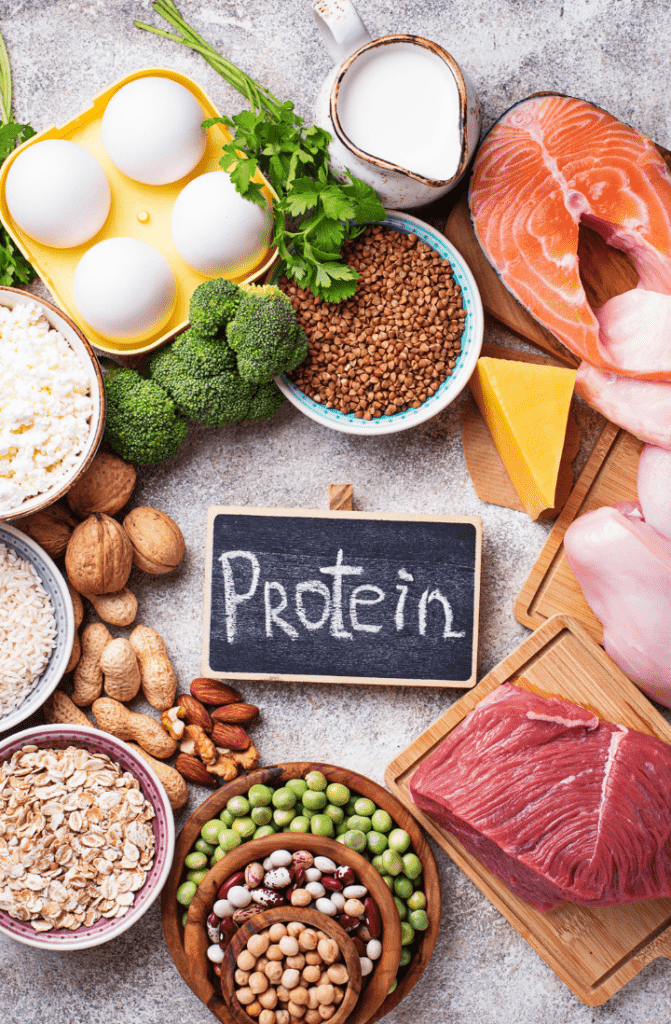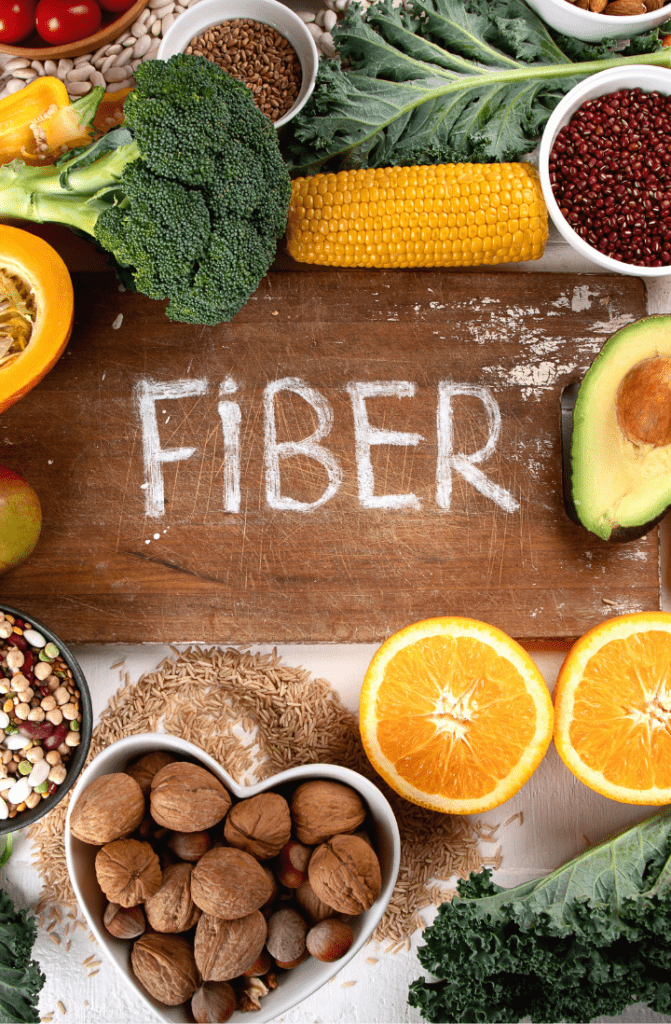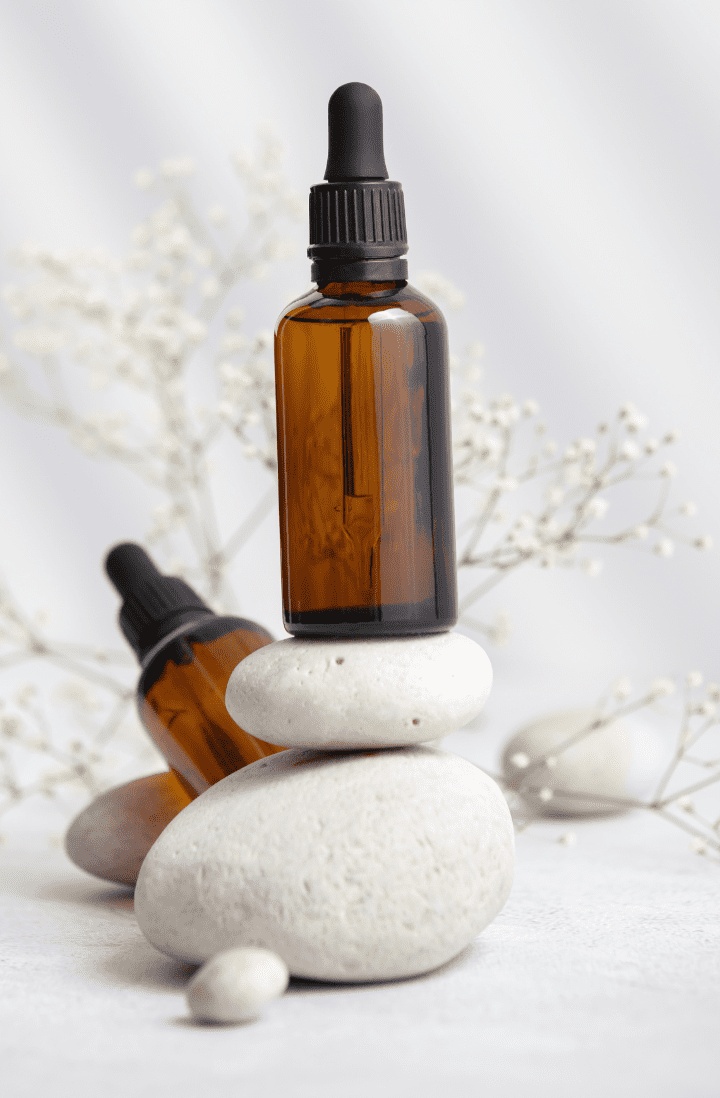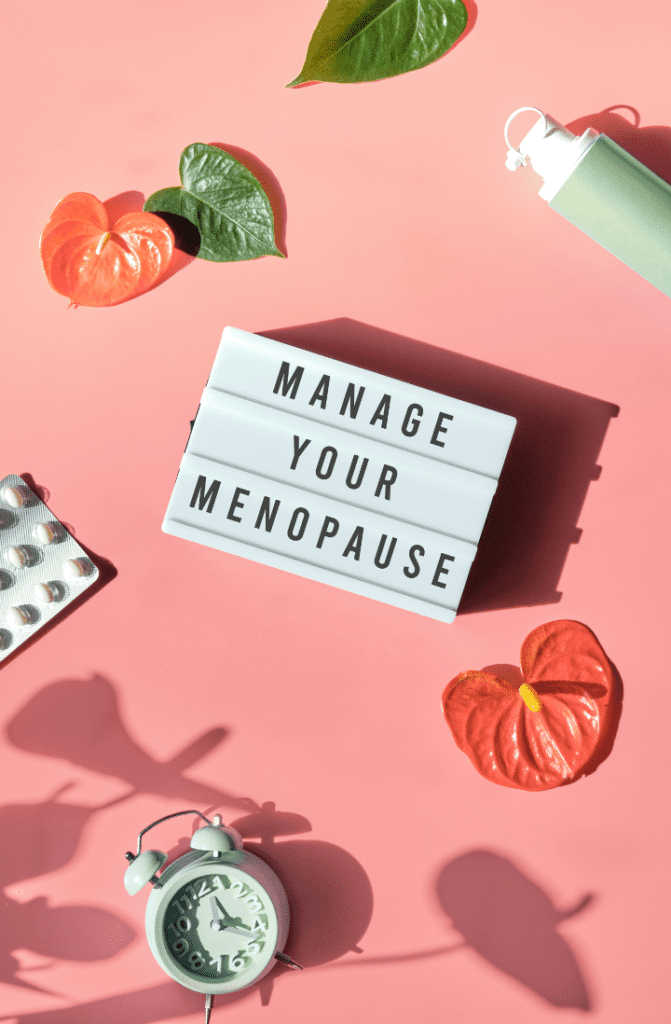Menopause is an individual process of life that carries many discomforts and bodily changes. Fortunately, there are natural remedies you can use to help ease discomfort and age gracefully.
Menopause is inevitable for women, yet still dreaded. Going through body changes is hard at any age. Many women do not want to be on medication, and honestly, there are not many medications that will not do much to combat menopause symptoms anyways.
Menopause typically begins around the age of 51 but can occur between the ages of 40 and 58. It occurs when the menstrual cycle stops permanently, and estrogen levels begin to decline, which causes a variety of metabolic impairments that can negatively impact a woman's quality of life.
It is possible to use holistic methods to help manage the symptoms of menopause, and many women choose to do so as hormone replacement can have health risks and is a financial burden for most.
The Most Common Menopause Symptoms
Menopause can start setting in at many different ages, and symptoms can present in different ways. It is not likely that all symptoms will come on at once. You may notice small changes here and there, and then they will overlap over time. Experiencing multiple menopause symptoms at one time can be overwhelming and seem unbearable, so having tools on hand to help reduce some symptoms, even in the slightest, is very helpful.
Some examples of menopause symptoms include:
- Weight gain
- Impaired glucose tolerance
- Hypertension
- Hot flashes
- Fatigue
- Sexual complaints
- Vaginal dryness
Can You Manage Menopause Naturally?
There are a variety of natural ways that you can naturally manage your menopause symptoms. It is important to remember that while the biological aspect of menopause is huge, so are the physical, psychological, and social aspects.
To best manage your menopause symptoms, you should make changes that impact all those aspects of your health.
Making lifestyle and diet changes are two of the most impactful natural remedies for menopause. Changing your diet and exercise habits and reducing stress will likely make your symptoms less bold and life more tolerable while you are in the trenches of menopause.
Menopause is not an acute illness. It is chronic and requires consistent treatment over several years.
1. Make Lifestyle Changes To Ease Menopause Symptoms
One of the best things you can do for yourself when you begin to notice menopausal symptoms is to reflect on your current lifestyle habits and plan how to live your healthiest and happiest life. After all, we should be doing this anyways.
- Add Exercise to Your Daily Routine: Adding exercise to your daily routine can help change your overall health, whether you are going through menopause or not. There is no significant scientific evidence showing that exercise eliminates or decreases menopause symptoms, but there is evidence showing that it helps to increase mood and sleep quality which are aspects of life that menopause can heavily impact. Participating in yoga, aerobic exercise, and breathing exercises can help eliminate stress and make you feel more confident. This is ideal because, during menopause, you might feel irritable or overwhelmed and less confident due to the changes in your body.

- Weight Maintenance: It is no secret that exercise also helps you maintain your weight. Due to the metabolic changes that occur in your body during menopause, weight loss is often a byproduct. Gaining weight can not only impact your confidence but can also add extra strain on your body which. This is a concern because, during menopause, you begin losing bone density.
- Sleep and Stress: Exercising is proven to help you establish a healthy sleep routine and often leads to better sleep which can help to decrease the fatigue that women often feel during menopause. Exercise is also a great way to reduce stress due to the hormones that are released when you do it. These hormones are also great for boosting mood. Menopause is a hormonal nightmare, so increasing any hormones possible that will positively impact your daily life is ideal.


2. Supplements and Vitamins That Help With Menopause
- Calcium and Vitamin D: Eating foods rich in calcium and vitamin D will help combat bone loss, a major concern during menopause. Menopause is the most common cause of osteoporosis in women. This is due to the drastic decline in estrogen, a hormone that helps keep your bones strong in your younger years.

- Vitamin K: Vitamin K is also a great addition to your diet because it can help combat bone loss along with vitamin D and calcium. There is some evidence that vitamin K can help reduce the intensity of night sweats and sleep disturbances that menopausal women often experience. Remember to make an effort to get a combination of plant and animal-derived vitamin K.
- Vitamin B: Menopause is very stressful on the body, and vitamin B is known to help fortify the nervous system. Making sure you have sufficient vitamin B in your diet may help decrease mood swings and increase energy.
3. Dietary Changes That Help With Menopause
- High Protein: Hormonal changes experienced during menopause can cause unexpected food cravings, and appetite can be all over the place. Eating foods high in protein can help to curb hunger and keep you full longer, so aim to eat high-protein snacks
- High Fiber: Adding high-fiber foods into your diet can also help combat cravings and weight gain because, like protein, it keeps you fuller longer. Make note that vitamin K is found in meat, eggs, dairy, and fermented foods, which are also high in calcium and protein, so load up! Foods like whole grain oats, flax seeds, fruits, and vegetables are high in fiber and great additions to your daily diet. Consider mixing some whole-grain oats with yogurt (high in calcium and protein), flax seeds, and fresh fruit to sit overnight and eat for breakfast or a mid-day snack the next day. Whole-grain bread, brown rice, and barley are also great sources of fiber.


- Black Cohosh: Black Cohosh is a plant that has been used as a holistic medicine since ancient times. It has been known to have pain-killing effects. It is thought to be useful for combating menopause symptoms because it is known to have a calming effect on the nervous system, which is heavily impacted by menopause. Science cannot say for sure, but because one of the phytochemicals in black cohosh mimics serotonin to an extent, it is thought that it can help regular your body’s temperature, which could potentially combat hot flash symptoms.
- Phytoestrogens: Soy products are thought to help fight off hot flashes because they are high in phytoestrogens. Phytoestrogens are found in plants and can mimic, to an extent, the effects of estrogen in the body. Eating soy products in the rawest form possible may help to fight off hot flashes and other symptoms.
4. Essential Oils That Help With Menopause
Essential oils are often used as a homeoopathic treatment. They can be put into an oil diffuser, inhaled, or diluted and rubbed onto various body parts. Some essential oils are thought to help decrease menopause symptoms.

- Clary Sage: This oil is thought to decrease hot flash symptoms and slow the progression of osteoporosis, a major concern during menopause. You can diffuse this oil or rub it across the back of your neck.
- Peppermint: Peppermint oil is known to have calming effects, which can be useful during hot flash attacks and moments when your mood swings are getting the best of you, leading to feelings of frustration and anxiety. If you experience cramping during the onset of menopause, peppermint oil can help to reduce the pain.
- Lavender: Feelings of calmness are often associated with lavender which is why people often use lavender oil to help them sleep or when experiencing pain. Menopause typically causes sleep-related problems like insomnia and restlessness. Using an essential oil that promotes sleep and calmness may help decrease sleep disruptions.
- Geranium: This essential oil is thought to reduce menopause symptoms in women. Geranium oil may also help manage changes in hormones and has hydrating effects. Adding some geranium oil to bath water may be helpful for reducing skin dryness which women often experience during menopause.
- Basil: Another oil great for helping reduce menopause symptoms is basil oil. It is thought to have the ability to boost both your mood and estrogen levels which will both go haywire during menopause. It is commonly diluted and put on the feet or the back of the neck.
5. Turn to Social Support & Relationships
One of the best things you can do for yourself when you start to experience the onset of menopause is to turn to your support system and utilize the relationships around you. Going through changes is always hard. The changes you experience during menopause will likely leave you confused and lonely.
It is perfectly normal to have these feelings, and asking for help is the best thing you can do. You can lean on support from friends and family members who have already experienced menopause or reach out to online support groups for women undergoing the same thing.

Consider asking your doctor or a local women’s clinic for emotional support resources. This may include resources like local or online support groups, group or individual counseling recommendations, or even homeoopathic treatments like chiropractic care or massage therapy.
Takeaways
Remember that the way you experience menopause will never be exactly the same for you as someone else, which means that what works for someone else may not be as helpful to you.
It is important to explore all-natural remedies for menopause and continue trying different things throughout the years as your body changes.
While natural remedies for menopause are ideal, some people do require medication, and you should not feel any shame if your body needs additional support. Always consult a physician before making drastic diet and lifestyle changes, and listen to your body when implementing a new diet or exercise.



Comments
No Comments